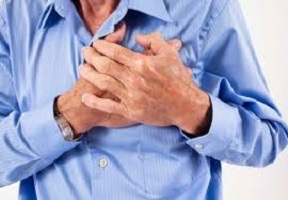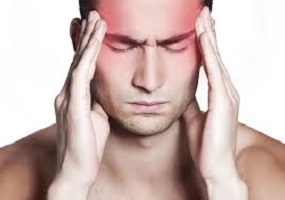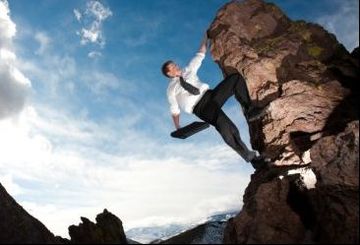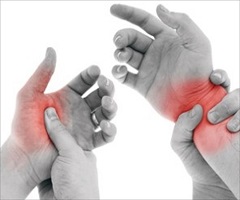www.dublinmindclinic.com/biofeedbackWe are working with Dublin Mind Clinic and only seeing clients in their facilities. To get more information continue reading or you can contact Dublin Mind Clinic HERE
Stress/Anxiety or Depression |
If you're at the bottom of the stairs your heart might be beating at a rate of 72 beats per minute, when you climb to the top of the stairs it might be beating at 120. That’s appropriate and that’s exactly as it should be. You’re working a little harder.
However, if 10 minutes later you’re still stressed and your heart is still beating at the same rate - you have an issue. We are designed to switch on and then off but if you're chronically stressed because of work, mortgages, taxes or personal life (as most of us are) you're not switching off. Biofeedback allows you to see the physiological effect of changes you make when you work or play so you can learn to ‘let go’ efficiently. Anxiety and or depression are feelings that are frequently associated with stress, they may pre-empt it or be because of it. The interesting thing is that we can easily see how they affect us and more importantly learn how to manage them more effectively. It all relies on how we perceive stressors like work, social situations, bad news, fear etc. |
Cardiac related issues
|
‘The heart is where it’s at’. Well that’s what they say and there’s truth in the saying. It’s complicated though. Some people are dealing with cardiac conditions and some people feel sensations that are very heart orientated but may not be caused by an underlying cardiac problem. The one thing that both types of people have in common is that they tend not to breathe very well. Biofeedback helps you see things like your breathing patterns, your pulse and your heart rate variability (your heart-rate is supposed to increase and decrease appropriately as you need it) or your blood pressure. When you can see these you can learn to control them.
|
Headache
|
A lot of people put migraine and headache into the same category. They’re not. For example, a headache can be caused by a person typing in work and keeping their muscles tight, it could be caused by an infected sinus, it could be a person winding down after a bad week. You get the idea, there’s lot's of possibilities.
Let’s look at one type though. If you unconsciously keep a muscle tight and it’s in your shoulder you’ll probably find yourself hurting, rubbing it, stretching it or getting that headache. One of the great things we can do in biofeedback is simply letting a person see if they’re using a muscle without realizing it The good news is that you can learn to be more efficient and deliberately relax it. |
Migraine |
An aspect of migraine that’s forgotten or not known is that it’s not just a headache – it’s a complex neurological condition. The headache is a symptom for most people, though not all. Some people get auras, some don’t.
In biofeedback, we discuss many of the triggers and how they work but with the added benefit that you can see what happens even by talking or thinking about them. In Biofeedback Ireland we’re particularly interested in the way you tense up, what happens to the way you breathe, the way you may get really cold or warm etc. |
Sleep Issues
|
The harder you try the less likely you are to sleep. It’s the night before the presentation in work, an exam, or an interview and you say to yourself that you need to fall asleep now. Unfortunately you can’t or if you do you wake up again or you wake to early. That happens to a lot of us but it’s even worse when it’s happening regularly or even nightly.
Biofeedback adds a dimension to all the relaxation exercises you may have done in that you can see if you are really quietening down, figure out how to do it and then apply it. Pain is one of the main reasons we go to our physician. It’s usually secondary to an underlying problem i.e. you may have a broken arm and it hurts but in about 6 weeks it heals and the pain goes away. But what happens if the pain doesn’t go away. Or let’s say, you herniate a disk in your lower back (slipped disk). You have surgery to repair it but despite the fact that the disk now looks fine you are still hurting.
Pain is a very complicated sensation and it’s affected by your mood, your thoughts and your surroundings. It’s one of the biggest stressors you can experience. Biofeedback helps because you can see the effect of pain and begin to understand that it can be both a symptom and a cause of suffering. Performing at your peak means different things to different people. For the executive it can mean being able to do your job at an exemplary level. Being able to present, sell, to be interviewed and to interview or to juggle home life with work life. Not being anxious, sleeping better, getting the best performance across everything you do is essential. You need to be able to relax when you can but be at your peak when you need it.
‘It’s not what you do, it’s the way that you do it’ or so the song says. I’ve been in some big tech companies and seen people contort their bodies into shapes that would make most ergonomists cry. I’ve seen people in the best sit/stand desks on the best chairs… some were fine, others in agony. I quickly recognised, with the OT’s I was working with, that it wasn’t just the equipment, it was how you used the equipment. Biofeedback allows you to make sure you’re relaxed while you’re using the paraphernalia. It doesn’t matter if it’s a split keyboard, a violin, or a knife for chucking oysters, if you’re not relaxed while you’re using it… something is going to start hurting, especially if you are doing it repetitively.
|







